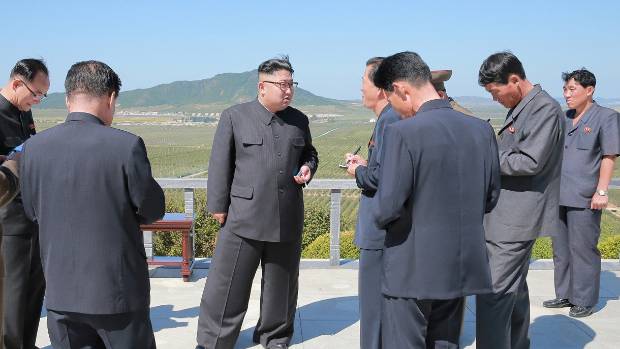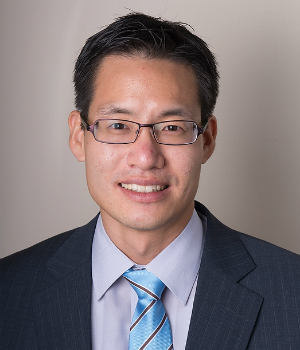In Pursuit of North Korean Human Rights and Denuclearization
Editor’s Note: North Korea may be both the world's most dangerous and most despotic regime. Understandably, most U.S. administrations have focused on the nuclear danger, but the Trump administration has also stepped up pressure on the human rights front. Andrew Yeo of Catholic University argues this focus makes sense and that confronting North Korea requires calling the regime out on human rights.
***

Editor’s Note: North Korea may be both the world's most dangerous and most despotic regime. Understandably, most U.S. administrations have focused on the nuclear danger, but the Trump administration has also stepped up pressure on the human rights front. Andrew Yeo of Catholic University argues this focus makes sense and that confronting North Korea requires calling the regime out on human rights.
***
Earlier this month, Chung Eui-yong, South Korea’s national security advisor, announced from the White House that Trump had accepted an invitation to meet with Kim Jong Un to discuss the country’s nuclear program. The prospect of direct talks poses both risks and opportunities—and could be a chance to raise the issue of human rights issues directly with the regime.
The Trump administration has addressed the issue of North Korean human rights more and more prominently in recent weeks. To recap, during his State of the Union address, the president praised North Korean defector Ji Seong-ho as a “testament to…freedom.” Ji, who had his leg amputated, stood up from the first lady’s box and triumphantly waved his crutches in response to the thunderous applause. The next day, President Trump met with a group of North Korean defectors, listening to and commenting on their harrowing stories.
Vice President Mike Pence also mentioned North Korean human rights before departing to South Korea for the Winter Olympics. Pence declared, “We’ll continue to seize every opportunity to ensure that North Korea does not use the powerful imagery and backdrop of the Olympics to paper over an appalling record of human rights and a pattern of developing weapons and conducting the kind of missile launches that are threatening our nation and threatening neighbors across the region.”
In South Korea, Pence met with four North Korean defectors, thanking them for their courage. Pence then invited Fred Warmbier, the father of Otto Warmbier, as his guest to the Opening Ceremonies. The younger Warmbier was the University of Virginia student held captive in North Korea for stealing a sign in an off-limits area; he was released in a coma 17 months later and died shortly after his return to the United States.
Pence again evoked human rights when describing his “awkward non-encounter” with Kim Jong Un’s younger sister, Kim Yo Jung. Unfazed by her charm, the vice president condemned the dictator’s sister as "a central pillar of the most radical and oppressive regime on the planet, an evil family clique that brutalizes, subjugates, starves and imprisons its 25 million people.”
Critics might see the elevation of North Korean human rights as ill-timed or imprudent given the positive momentum in inter-Korea relations and South Korean efforts to promote diplomatic engagement between the United States and North Korea. Nevertheless, there are sound reasons for the Trump administration to address human rights issues while in pursuit of North Korean denuclearization in a Trump-Kim summit meeting.
For an administration that has remained relatively quiet on human rights, particularly in Asia, the call for human rights in North Korea is welcome. The existence of gross human rights abuses in North Korea is indisputable. One report filed by a United Nations Commission of Inquiry records the public testimonies of more than 80 North Korean defectors, and includes input from interviews with 240 additional defectors. Major human rights NGOs, such as Amnesty International and Human Rights Watch, and organizations such as the Committee for Human Rights in North Korea have also provided ample evidence substantiating claims of human rights abuses. These abuses include arbitrary detention, torture, and execution in political prisons. North Korean citizens are also denied basic freedoms of thought, expression, religion, and movement. There is no way to sugarcoat these gross human rights violations.
Some have criticized President Trump as being disingenuous, raising human rights solely as a means of exerting further pressure and aggravating the regime. Others supporting diplomatic engagement with North Korea may find the recent focus on human rights counterproductive. Pence’s role as “anti-propaganda warrior” and his cold shoulder to the North Korean delegation during the opening ceremonies was lamented as a missed opportunity and contrary to the Olympic spirit. North Koreans, who often lash out against accusations directed against its human rights record, may be less open to future talks with the United States if constantly harangued about human rights. In a Trump-Kim summit, raising human rights might offend Chairman Kim, dampening the spirit of engagement and risking the prospects of denuclearization.
Human rights was once viewed as a distraction to nuclear talks or treated as a separate issue, but a growing consensus has emerged to pursue human rights and the nuclear issue simultaneously. As Victor Cha and Robert Gallucci—experts who have represented the U.S. government during nuclear negotiations with North Korea—have stated, “Addressing human rights will be part of a political settlement that accompanies a peace treaty to formally end a 60-year state of war on a nuclear weapons-free Korean peninsula…Actors should not hold back on condemnation of human rights abuses in an effort to aid diplomatic engagement, as has happened in the past.”
Like nuclear weapons, human rights abuses are part of a core strategy for North Korean regime survival. Nuclear weapons are the antidote against external threats, while severe repression functions as a means of authoritarian control against domestic challenges. Hence, Cha and Gallucci argue, “The national security threat posed by North Korea to the United States and its allies stems not just from the nuclear and missile threats, but from a government, in possession of such weapons, which is capable of a level of abuse of its own citizens unprecedented in modern human history.”
As U.S.-North Korea dialogue proceeds, the Trump administration might consider moving beyond its earlier naming-and-shaming strategy and begin to engage the regime on human rights issues more quietly, but directly. President Trump may have the rare chance to begin a conversation about improving human rights conditions in North Korea and should not let the opportunity pass.





